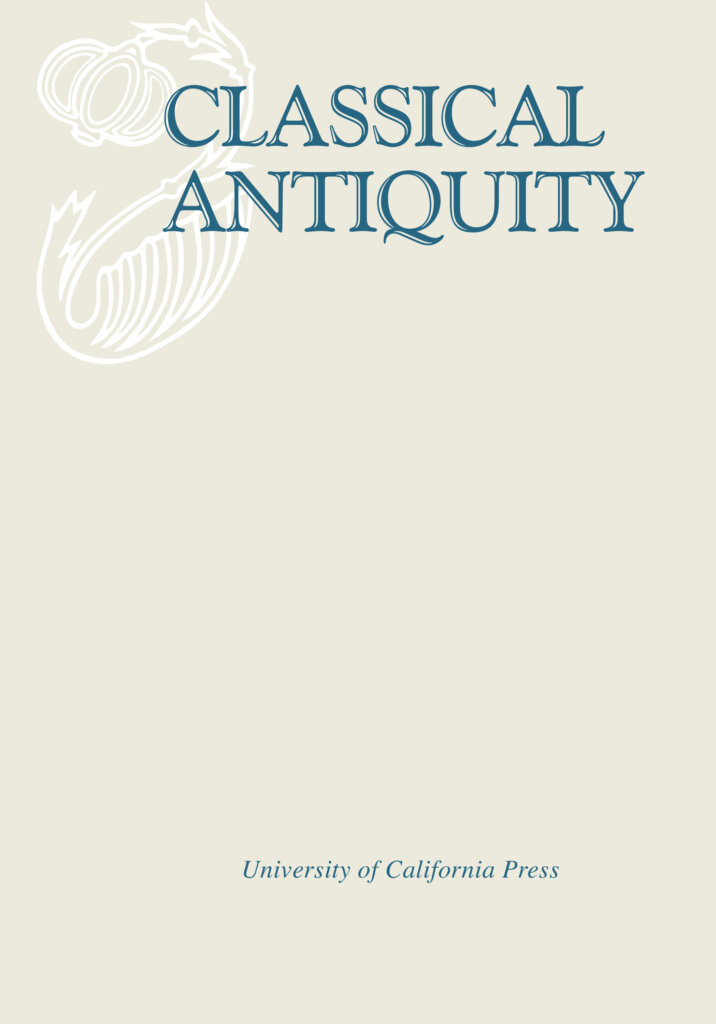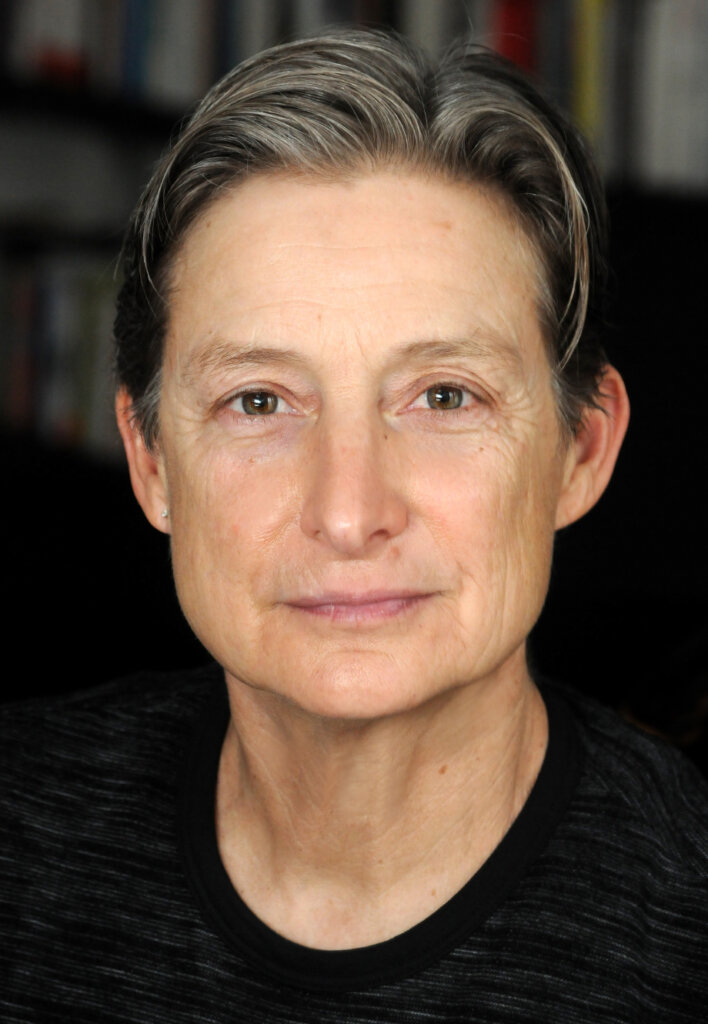By Mario Telo, Editorial Board Chair, Classical Antiquity

We are very proud to publish “Fury and Justice in the Humanities” by Judith Butler in the new issue of Classical Antiquity. The boldest and most compelling thinker, the most influential and inspiring public intellectual, someone whose magisterial work on gender and such broad issues of ethical politics as vulnerability, precarity, and interdependence has deeply affected and enlightened both those who have read it and those who have not, Butler has frequently centered Greek tragedy (as I discuss in a forthcoming book, Reading Greek Tragedy with Judith Butler).
The realm of a mythical beyondness dominated by spectacularly dysfunctional families and searing emotionality but also encompassing unexpected, unscripted solidarities, Greek tragedy supplies Butler with a discursive field for critiquing naturalized structures of psychic, relational, and political power; for generously imagining new contours of the social; for pushing, as both philosopher and activist, against the ostensibly insurmountable “given”; for practicing emancipatory radicality as the art of the impossible, too easily dismissed. Inspired by the feelings of melancholic siblinghood, collective being-in mourning, and vulnerability in resistance in the time of AIDS, Butler’s Antigone’s Claim (2000) locates the political force of Sophocles’ heroine not in escapist fantasies, but in the demand for queer kinship, for the recognition of bonds unconstrained by heteronormative imperatives. Published long before the legal recognition of gay marriage in the U.S. and other Western countries, Antigone’s “claim,” as articulated by Butler, has taken on renewed urgency in the face of accelerating attacks against LGBTQIA+ people, whom authoritarian governments have been quick to use as scapegoats in the midst of the global socio-economic and ecological crisis epitomized by Covid-19. In some places, the face of what is maliciously labeled “gender ideology”—more accurately, a rigorous refutation of gender essentialism and binarism that has begun to inform governmental language—Butler has become Antigone (and the forthcoming non-academic book Who’s Afraid of Gender? will resume the legacy of Antigone’s claim).
Physically threatened in 2017 in Brazil, Butler was also a sort of Dionysus, the “dangerous,” orientalized foreigner gathering crowds of acolytes, inducing them to abandon their heterosexual homes, awakening a trans desire, as the god of the vine does in Pentheus, the king of Thebes. Dionysus is the protagonist of Euripides’ Bacchae, which Butler analyzed in the Housman Lecture at University College London in the same year as a dramatization of kinship trouble, of kinship troubled by its anthropocentric constrictions and the inherent breakability that tightens the relational bond.
In “Fury and Justice in the Humanities”—a reading of the last play of Aeschylus’s Oresteia—Butler presents humanistic education not as dispassionate positivism or apolitical reconstructive specialism, but rather as an affectively charged critical-theoretical engagement, a commitment to social justice and to abolitionism, understood as the eventual dismantling of the carceral system, in the face of systemic racism (an intervention that perhaps activates the punning resonance between humanities and Eumenides). Rather than seeing the play as a structuralist transition from revenge to legal justice and the domestication of the angry Erinyes, an imprisonment of sorts, as just the price to pay for their integration into the community, for civic harmony, which is, in fact, a legitimized curbing of dissent, Butler underscores the intrinsic violence of the law, its identification with punishment as such, a punishment often more harmful than the harm it purports to redress, as suggested by Black critiques of the Prison Industrial Complex. In Butler’s words:
The assumption is that prison checks the violence of individuals rather than tending to put those individuals in violent cultures, cultures reactive to violent institutional practices, especially when understood to be regenerating systemic racism. In turn, this raises the question of whether prisons produce more violence than they check, whether what counts as a form of “checking” violence is itself a further iteration of violence, and how best to distinguish among these two sorts of violence. The proposition that one sort of violence can and should be checked by an arguably greater violence— the violence of the prison system—is itself angering, and justly so. Fury again. The prison system is a complex of legal violence, or a violence that is supported by a complex set of legalities…opened up by the law but exceeding its terrain. In arguing that one sort of violence is best overcome through subjecting those criminalized to a violent institution, violence is not only continued but legitimated. Does this sort of situation then lead us back to the Eumenides?
In this perspective, Aeschylus’s play seems to undo the teleological narrative it stages, making a case for the anger it apparently represses, for the “critical fury” that, according to Butler, the Humanities can fuel, providing us with the instruments for resisting and rebelling, as we necessarily live with and under law, we cohabit with—and inhabit—its authorized violence:
If . . . the violence that is said to be overcome by law is actually preserved and redeployed by law, then a tautology emerges along with a fairly consequential question: Is living according to laws any less violent than living without them? One can see how an anarchist view could emerge from such an analysis of the tautology of law. One can also see how a nihilist view could emerge. But one could also well become angry that the very legal institutions that promise to overcome violence actually embody violence—often a greater violence than the one they claim to overcome. How do we understand this kind of anger? Is this not also a legitimate fury, one that can be neither contained nor seduced by the law? Shall we call it a critical fury that forms in relation to an institution that says one thing and does the opposite, and that claims that only the vengeful and destructive fail to grasp and honor the legitimacy of this institution?

Read Judith Butler’s “Fury and Justice in the Humanities” in Classical Antiquity for free online for a limited time.